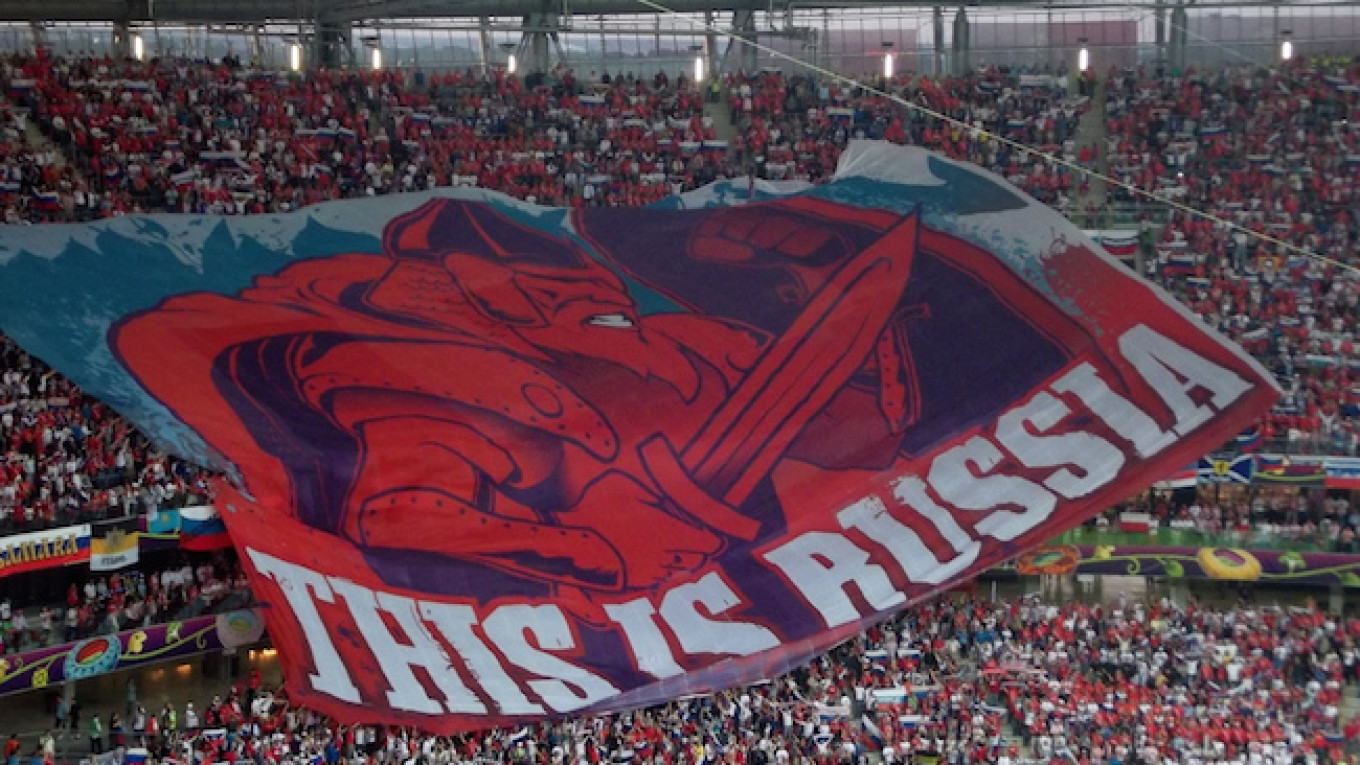Racism in World Cup host Russia is a "big challenge" ahead of the 2018 tournament said FIFA anti-racism chief Jeffrey Webb who urged clubs to tackle the problem from the "dressing-room out."
Webb, chairman of FIFA's Anti-Racism and Discrimination Task Force said the Russian authorities had acknowledged the problem and are committed to dealing with it.
"Russia's a big challenge," he said in an interview. "We've met with minister of sport Vitaly Mutko, who is a member of the FIFA executive committee, and he has publicly said, 'Look, it's a challenge, it's obviously a problem.'"
"They are going to start addressing it. We are going to work with them hand in hand," Webb said.
The CONCACAF president added that educational activities had to be at the centre of the initiative.
"Education, it has to be education. You are not born that way, it is something you are taught, someone teaches you to hate or to develop a certain way, we have to go into the communities," he said, adding that soccer could learn something from the way American athletes work in their localities.
"You also look at the way that professional athletes in this country embrace their communities, the way they go into the inner cities, the way they work, their foundations and so forth.
"Everyone is doing something in their community and they are tearing down those barriers by doing that," he said.
"Start talking, educate, they have so much power. We have to do it from the inside, out. You have to do it in the dressing room, make sure that level of education is there … and then at the entire club.
"When you impact the club, you impact the stadium, you impact the community. It has to start with coaches, players first in that dressing room — when that is there it spreads out," he added.
Last October, Zenit St. Petersburg's Brazil forward Hulk and Dynamo Moscow's French-born Congo defender Christopher Samba were the target of monkey chants from Spartak and Torpedo Moscow fans respectively during Russian Premier League games.
Manchester City's Ivorian midfielder Yaya Toure was also subjected to monkey chants from the stands in October 2013 during a Champions League game at CSKA Moscow's Khimki Arena.
Racial Abuse
Recent racism cases in South America — in Peru a Panamanian player was a victim of racial abuse — show the problem is not limited to Europe and Webb said FIFA had focused on creating an effective system for reporting cases and handing out sanctions.
"There is a lot of focus on Europe from the media standpoint because of the incredible media the game gets there," he said. "But really, from a FIFA perspective, we have got staff now dedicated to this.
"We have a social responsibility department with officers now dedicated for racism, we identify high-risk games and we are now going through the process of FIFA selecting monitors.
"Right now they are assigning UEFA and CONCACAF officers to high-risk games but by summer you will have FIFA up to scratch with it. That is a huge process because of the reporting side."
Webb said the fact that clubs who might be sanctioned could take their objections to the Lausanne-based Court of Arbitration for Sport (CAS) meant the process needed to be watertight.
"For a disciplinary committee to take action, their decision, the appeal process could end up in CAS, so the reporting has to be very good and be able to stand up to it," he said.
"That is where the training of the officers is so important to make sure that if you are going to say to a club, 'We are going to deduct points from you,' or to relegate a team for consistent breaking of rules and regulations in regards to anti-racism, you have got to have very detailed reporting to do that, to sustain that," Webb added.
A Message from The Moscow Times:
Dear readers,
We are facing unprecedented challenges. Russia's Prosecutor General's Office has designated The Moscow Times as an "undesirable" organization, criminalizing our work and putting our staff at risk of prosecution. This follows our earlier unjust labeling as a "foreign agent."
These actions are direct attempts to silence independent journalism in Russia. The authorities claim our work "discredits the decisions of the Russian leadership." We see things differently: we strive to provide accurate, unbiased reporting on Russia.
We, the journalists of The Moscow Times, refuse to be silenced. But to continue our work, we need your help.
Your support, no matter how small, makes a world of difference. If you can, please support us monthly starting from just $2. It's quick to set up, and every contribution makes a significant impact.
By supporting The Moscow Times, you're defending open, independent journalism in the face of repression. Thank you for standing with us.
Remind me later.






